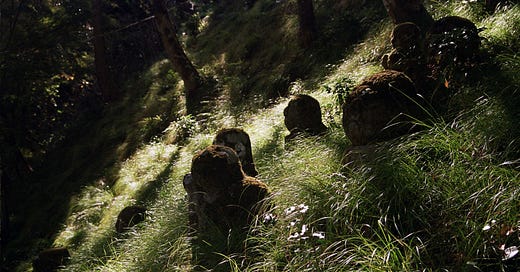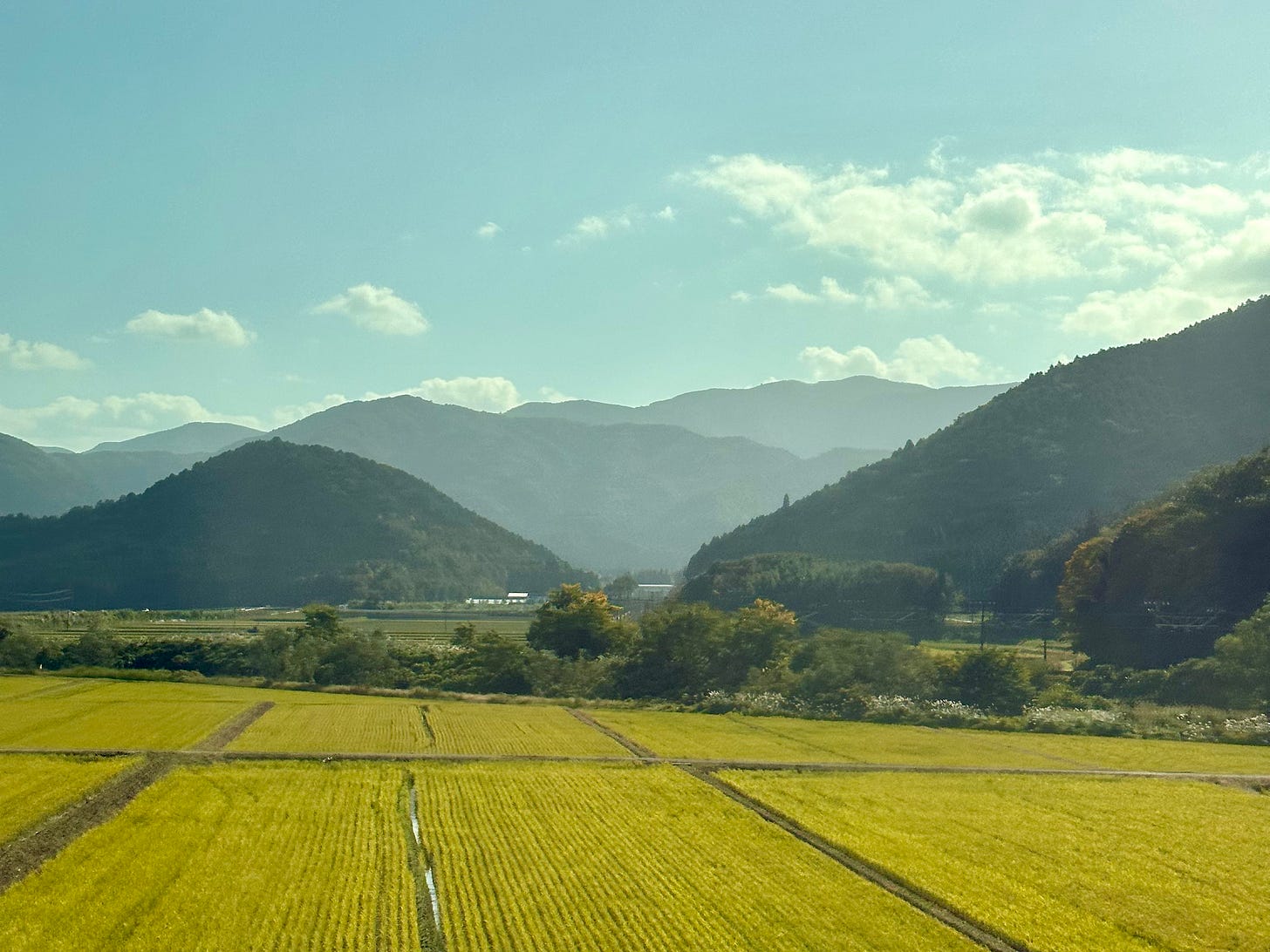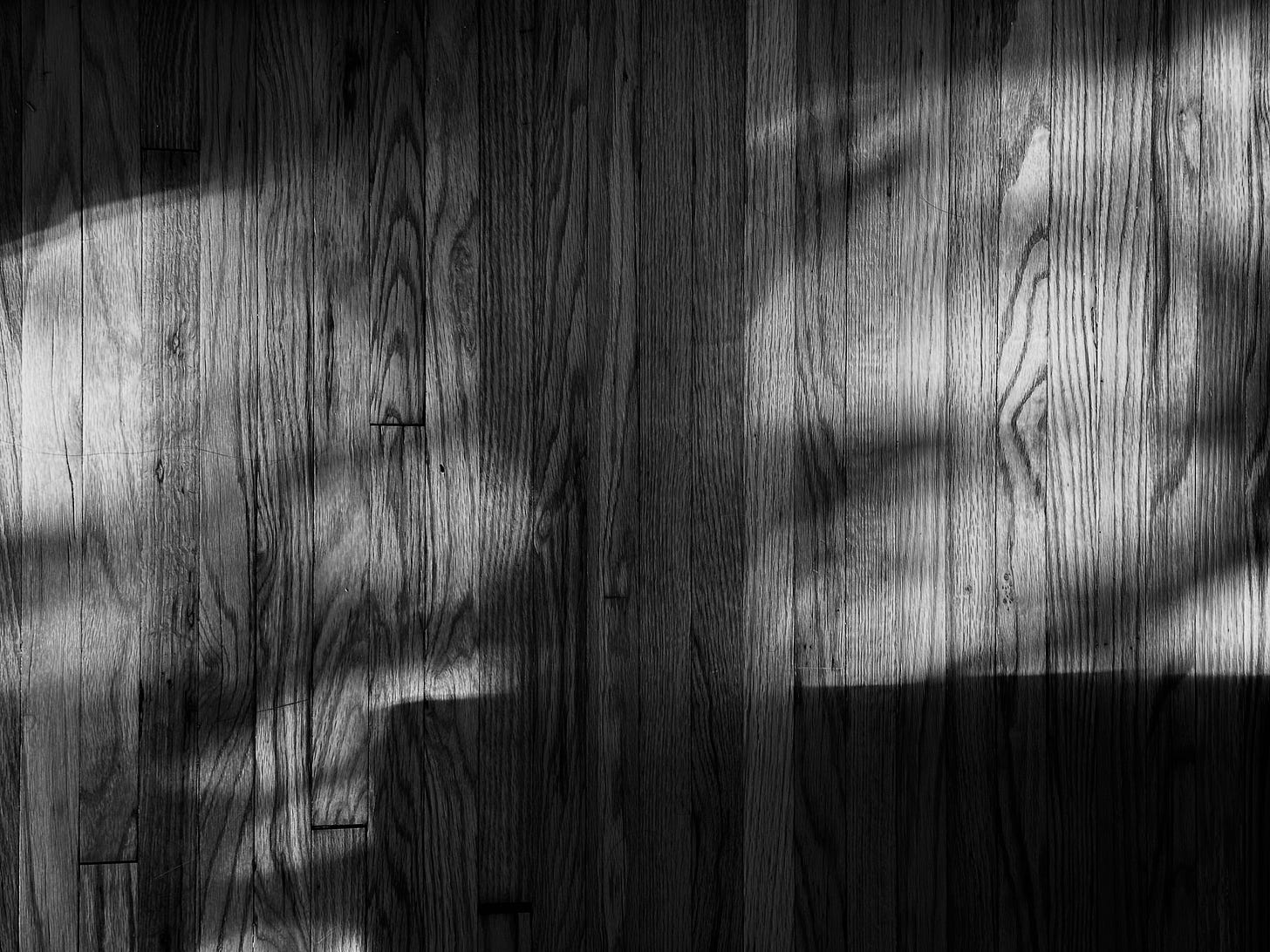“For me, the deep forest is connected in some way to the darkness deep in my heart. I feel that if it is erased, then the darkness inside my heart would also disappear, and my existence would grow shallow.”
—Hayao Miyazaki, from a 1988 interview.
A question I love asking people is “what’s your muse?”
The source of your inspiration, and your relationship with it, tells its truth through everything you do in the world. We usually come to understand it through revealed preferences — the patterns we observe in our work, the themes in art that resonates with us, the people we feel deeply drawn to, our taste.
Following those paths, like following meandering rivers on a map, draws us to what is essentially true about us. To our muses.
Muses can number many. They change. They come and go. Muses most often die of neglect. They contain mysterious and discordant and paradoxical properties, at once powerful enough to stir us into frenzied creation yet fragile, quiet, and impossibly delicate.
What’s clear, though, is that our muses are characterized more by absence than presence. They may be part of us, but we are not part of them. They must remain just out of reach. This gap, this middle distance, is what lies between what we have and what we desire. Between what we know and what we feel; what we mean and what we say.
If we do not understand them, or at least try to understand them, we risk losing our own essence. If we do not use our gifts from the muses — our inspiration — they will wither and rot and we will surely lose them.
I fear that I am losing mine.
It was a dry spell. Hadn’t rained for weeks. The hard sun cast a shimmering mirage over pockmarked soil, the clouds unfurled like sails across the desert sky. The meadow, once drenched in dew and aphid green, had lost its vibrancy to reams of brown and gold. Even the houseplants were withering.
embracing delusion
“There is a kind of madness — possession by the Muses — that enters into a delicate soul, inspiring frenzy, awakening lyric. The sane man is nowhere at all when he enters into rivalry with that madman.”
—Plato, from Phaedo (abridged)
People describe me in two camps: as passionate and thoughtful, or as extreme and intense. They’re talking about the same thing.
I give myself fully to the things I choose to do, to the people I love. What necessarily comes from that is the tendency to lose myself in those things — to find myself completely disoriented when I come up for air. Overextension is another side-effect.
You can’t have your cake and eat it too. You can’t be in two places at once. You can try (I do) but someone’s going to end up disappointed.
These aren’t good traits by any reasonable standard. A reasonable person (or a therapist) would probably tell me to find some kind of balance. Relax, separate my identity from my work, take a vacation, do things that should be fun (”should” feelings are almost always externally-motivated).
To do that — to rationalize my way into some kind of contrived, externally-validated balance — would be to deny something deeply true about myself. And if you’ve got something, you might as well work with it, not against it.
But the reasonable people do have a point. I get lost. I pay for it with my stability — with periods of intense and overwhelming stress. I do objectively unreasonable things. Sometimes I wonder if they’re right.
I’m just now coming off of the most intense and sustained period of work I’ve ever had. Like any early stage company, it’s been chaotic. At a macro level, things are trending good, but that’s hard-fought. You learn quickly that the simplicity of growth, that beautiful up-and-to-the-right curve, is not determinate; that even a default-alive company like ours is only a couple naïve decisions from death at any point.
You learn that, at this stage, vacations (as a founder) can be anti-productive. Not only are they not relaxing, but they distract you from the things your company needs. What is left unresolved only becomes less resolved.
These past several months have not been pleasant. They have been excessive and overwhelming and entirely my own doing. But this has never been about pleasure.
Creation is an act of becoming. Whatever form it takes, my work (including my business) is simply what I do to become myself. It’s variously been motivated by a sense of duty and obligation, by a desire to understand my identity, by the grief of heartbreak and the fear of inadequacy. These are all muses; they all sing in you the song of creation. They compel you to create.
And what compels you is what kills you, they say, if you leave it unchecked. What compelled me to actualize this business is killing my other muses. This is the cost of choosing.
a paradise of our own creation
“But today things are different. The darkness in the outside world has vanished, but the darkness in our heart remains.”
—Haruki Murakami, from Kafka on the Shore
Protecting our muses takes work; often, work that other people don’t understand. It wouldn’t be unfair to call it delusion. The most extreme artists nourish their muses by constructing their own worlds —entire ecosystems ruled by their own logic, upheld by their constant presence and hopeless dedication to it — sometimes at the cost of everything else.
A paradise of our own creation. A false world that contains undeniable truths — subjective ones. Truths about ourselves and what we desire, what calls our attention, what we find beautiful.
At the heart of that delusion, and within everyone, there is an essential darkness, a deep mystery, an unresolvable incongruence, a core disorder. It is a darkness that consumes all light. Some people venture in too deep and never come out. Others are too afraid to acknowledge it at all.
This darkness is what people driven to create seek to simultaneously protect, covet, understand, and leverage. In trying to resolve it, we are functions infinitely approaching zero and never quite reaching it. And so it compels us to desire, yearn, create, or escape.
We feel things as deeply as we need them. We seek truth as deeply as we need it.
Perhaps we’ve lost our access to this internal mystery by trying too hard to bring it to light. The world used to be a much darker place, covered in swaths of untouched forest. Perhaps we’ve lost some kind of ancient, intuitive wisdom in our pursuit of logic. Perhaps, in our desire to understand and be understood by the world — in our desire to protect ourselves from what we cannot understand — we’ve also lost a fundamental part of ourselves.
finding, keeping, killing
“We can be unsure of almost all things in the world, but beauty is not one of them”
G.C.
Last weekend, after a Saturday spent deep in work, I decided to take a long walk around Manhattan. It’d been a while since I’d let myself just wander, not beholden to anything or anyone, and I’d purposely kept the evening empty.
I ended up at a jazz bar in West Village and convinced the host to give me the lone seat at the front, where there were five seats and two couples. A trio was playing, and I soon found myself lost in their rhapsody, that invisible language.
New York had always been a muse to me.
The first time I came here as an adult, I was drawn in by its intensity like wind to sails. It was intoxicating — I’d long had a desire to escape the flatland I grew up in. Most of my life had taken place in sprawl, and sprawl has no need nor incentive to excel.
Almost by definition, New York City is not a place for sprawl. It’s a pressure cooker. A convergence of myriad competing universes.
Initially, I came here to be surrounded with the same kind of intense ambition, the same urge to create — that I wanted to define me. I wanted to be somewhere I could grow it, give it form. In doing so — by being in a city defined by constant pursuit, by impossible desire — I learned to want what other people wanted. Prestige, status, exclusivity.
But this time, it felt different. Those muses are dying, their song slowing. I don’t want them anymore.
My friend Rithika wrote recently about sustaining love, about when the euphoric joys of infatuation fade to reveal a quieter strength — an intimacy that lasts decades.
When we’re young, we’re drawn to things that call our attention — things that are loud, novel, exciting. Things that can’t be easily ignored.
Kids love supercars. They’re loud brash, showy. They value cars by horsepower figures and top speed. They value careers by celebrity and recognition; art by its price and exclusivity. By default, we are drawn to shiny objects, because attention is the first way we learn to value things, not least ourselves. It’s the most obvious way to substantiate your own existence in the vast ambiguous quantity that surrounds you.
This is the kind of beauty that takes.
It takes time to learn discernment; to judge things at the level of values instead of optics. To know what to pursue.
But as as you take notice of the nature of the things you value, you begin to notice subtleties. You become taken not by grand gestures and overt signals, but by more subtle, elegant details earned only through experience and deliberate study.
In a counterintuitive way, simple beauty isn’t so much affirming as accretive because it doesn’t have to play the role of elevation or validation. It stands on its own, elevated in its own right. And you stand before it.
This is the kind of beauty that gives.
The simple, cohesive form of a 60s Alfa Romeo GTV. The efficient operation of a unified team against an impossible problem. The meticulous selection of ingredients. The unbearable grace of a Chopin nocturne or Satie’s famous Gymnopédies. The formidable strength of a love that is quiet, steadfast, secure. The people who show up. A garden lovingly tended. The time things take. A postcard. A pile of cut-up fruit waiting for you every day when you come home from school.
The things we do not deserve to take for granted.








Often in our world, our priorities can be separated into two groups, ones that are urgent and ones that are important. I know this is a simplistic look at things, but it has worked for me. My challenge, and I think this relates to muses, is how to manage both the urgent and the important. So often in our lives or work, the urgent seems to grab our attention and time at the expense of the important. Over time ‘urgent’ becomes what we do and ‘important’ is left by the way, not fully explored, understood or tended to. This is not a good scenario. The trick is to find a way to tackle the important even if it means delaying the urgent. Without taking care of the important, our tank runs dry, our productivity languishes, we end up just doing and no longer thinking. Taking the time to address the important is life saving. How to manage that balance is individual. I continually struggle with the balance, but at least, I think I understand I need to carve out time and effort to get after the important.